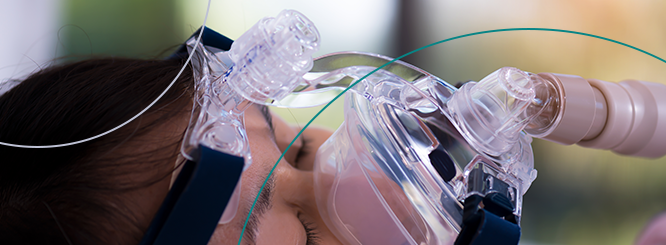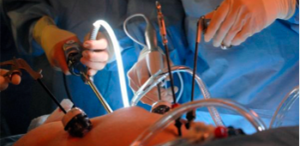
Obesity has become one of the most challenging health risks of modern times. According to the World Health Organization reports, more than 650 million adults were obese in 2016, worldwide.
This amounts to over 13% of the world’s adult population. This percentage has not decreased since then, and the obesity rate has also been increasing among kids and adolescents, at alarming rates. In the United States alone, nearly 42.4% of the adult population was dealing with obesity in 2018 according to the National Center for Health Statistics. Mexico does not fall far behind; by 2016, 28% of its adult population was dealing with obesity, and this tendency it rising very quickly.
Obesity is a risk factor for many non-communicable diseases, such as type 2 diabetes, heart disease, joint pain, metabolic disorder, and sleep apnea. Obstructive sleep apnea is a high prevalence illness among people dealing with obesity. More than 90% of adults with obstructive sleep apnea are obese. Obesity in itself increases the risk of developing obstructive sleep apnea. The odds ratio of developing sleep apnea increases by 1.14 with each unit increase in body mass index (BMI).
f you’re interested in obtaining information about bariatric surgery and sleep apnea, or you are considering if a weight loss surgery might be the right choice for you, please get in contact with our clinic LIMARP International Center of Excellence for Obesity. Our team of expert will be glad to help.
Definition
Obstructive sleep apnea, commonly found in medical literature as OSA, is a disease in which patients either stop or decrease their breathing due to an obstruction in their respiratory airflow that happens while they are asleep.
Fat around the tongue and soft tissues in the pharynx decrease the upper airway passageway to the trachea; when the patient falls asleep, the tone of the nasopharyngeal musculature decreases, which restricts or obstructs the airway. This causes apneic episodes at night, when the patient is sleeping.
The lack of oxygen and the retention of carbon dioxide in the bloodstream decreases the patient’s heart rate and blood pressure. As a reflex, the patient wakes up with tachycardia and hypertension. As the pharyngeal muscles regain their tone, the patient hyperventilates to oxygenate his blood again. A person diagnosed with sleep apnea will experience at least 5 episodes like this per hour. The severity of these episodes is measured with an apnea-hypopnea index (AHI). Patients with severe obstructive sleep apnea usually struggle with more than 30 apneic events per hour.
Causes
One of the main causes of sleep apnea is obesity. But there are some other factors that increase the risk of developing sleep apnea too. Male gender, being older than 50 years of age, having a neck circumference above 40 cm, suffering from hypothyroidism, tonsillar or adenoid hypertrophy, connective tissue disorders, craniofacial abnormalities, retrognathia, and macroglossia, and unhealthy life habits like regular smoking, and alcohol consumption are predisposing factors of sleep apnea. Insulin resistance, diabetes, and metabolic syndrome have also shown to be associated with sleep apnea.
Symptoms
Clinical symptoms of sleep apnea include loud snoring, apnea, gasping, choking, disruptive and restless sleep, and daytime sleepiness.
Risks
Apneic episodes stress the patient’s cardiovascular system, which poses serious heart risks. Complications of sleep apnea include hypertension, arrhythmias, right ventricular hypertrophy, and pulmonary hypertension. In cases where sleep apnea remains untreated, the risks are much higher, and can lead to strokes and sudden death. These patients also face a higher mortality risk during any surgical procedure.
Benefits of Bariatric Surgery in Sleep Apnea
The first line therapy for treating sleep apnea is the use of continuous positive airway pressure (CPAP). However, weight loss is the most effective treatment for relieving sleep apnea in the long term. Weight loss of 10 to 20% of body weight can reduce the apnea-hypopnea index (AHI) by 26%. But losing weight is not that easy. Most lifestyle intervention programs fail to achieve this during their first year. Bariatric surgery has shown to be the most effective way to lose weight for patients dealing with obesity; and not only this, it also leads to the improvement of many obesity-related diseases, including sleep apnea.
Depending on the study, the prevalence of sleep apnea among bariatric surgery patients ranges up to 70%. Many clinical studies have shown positive effects of bariatric surgery on sleep apnea patients.
A systematic review that comprised 69 studies and included 13,900 bariatric patients showed that all bariatric surgeries lead to improvement or resolution of sleep apnea, although to a different degree, depending on the surgical procedure. According to this review, the biliopancreatic diversion produced the higher resolution rates of obstructive sleep apnea in comparison with the Roux-en-Y gastric bypass and the gastric band. On average, 75% of patients experienced either resolution or improvement of their sleep apnea after their first year of surgery. Other sources have reported reductions in AHI greater than 50% in the long term after bariatric surgery treatment.
The benefits of bariatric surgery in sleep apnea patients are attributed to direct effects of weight loss due to the fact that it decreases adipose tissue on the neck, it increments lung volume, and it reduces inflammation. But other benefits can also be attributed to the metabolic effects of weight loss surgery, such as the reduction of gastric size, anatomical rearrangement, bile flow alteration, and enteric gut hormone modulation.
Treatment after Bariatric Surgery for Sleep Apnea
Great benefits can be expected of bariatric surgery for sleep apnea patients. However, patients who are diagnosed with sleep apnea before their surgery face some risks during and after their surgical procedure.
During surgery, the medical team might experience higher difficulties with intubation and extubation. The highest risk for the patient is experiencing apneic episodes during the first week after surgery, due to heavy sleep after taking medications or changing sleep patterns. The usage of CPAP helps to avoid these risks of bariatric surgery for sleep apnea patients.
The use of CPAP is recommended at least three weeks before, during, and sometimes an entire week after surgery to improve and maintain oxygenation. Candidates for bariatric surgery with sleep apnea can expect to use CPAP during a brief period after their surgical procedure, for a couple of weeks, and then continue without it, depending on the patients’ progress on weight loss.
There should be a proper diagnosis of sleep apnea before bariatric surgery, starting with a questionnaire and following with a polysomnography in cases that are necessary. The diagnosis of sleep apnea before bariatric surgery will contribute to prevent surgical complications and will allow a better follow up after surgery. Patients still experiencing symptoms of sleep apnea after bariatric surgery should talk to their doctor to seek advice for additional therapy.
Contact us
If you would like to know more about bariatric surgery and sleep apnea, please contact LIMARP International Center of Excellence for Obesity. Our clinic is located at Tijuana, Mexico, just 15 minutes away from the International Border Crossing of San Ysidro.
You can send us a message through our webpage or through any of our social media websites to make an appointment today. We offer surgical and non-surgical treatments for obesity that are part of a complete program, including nutrition and physical activity plans, psychological therapy and continuous follow up.


